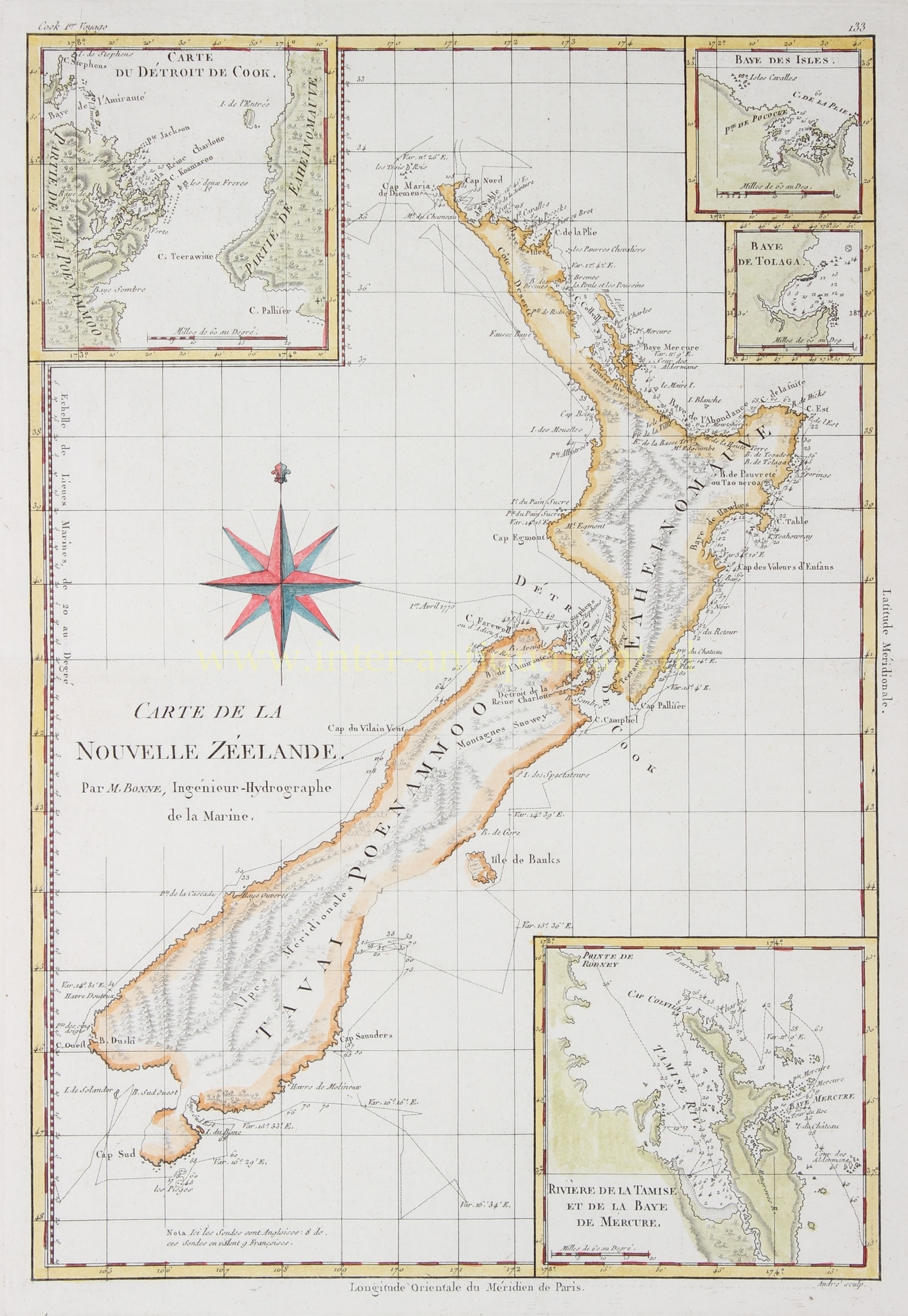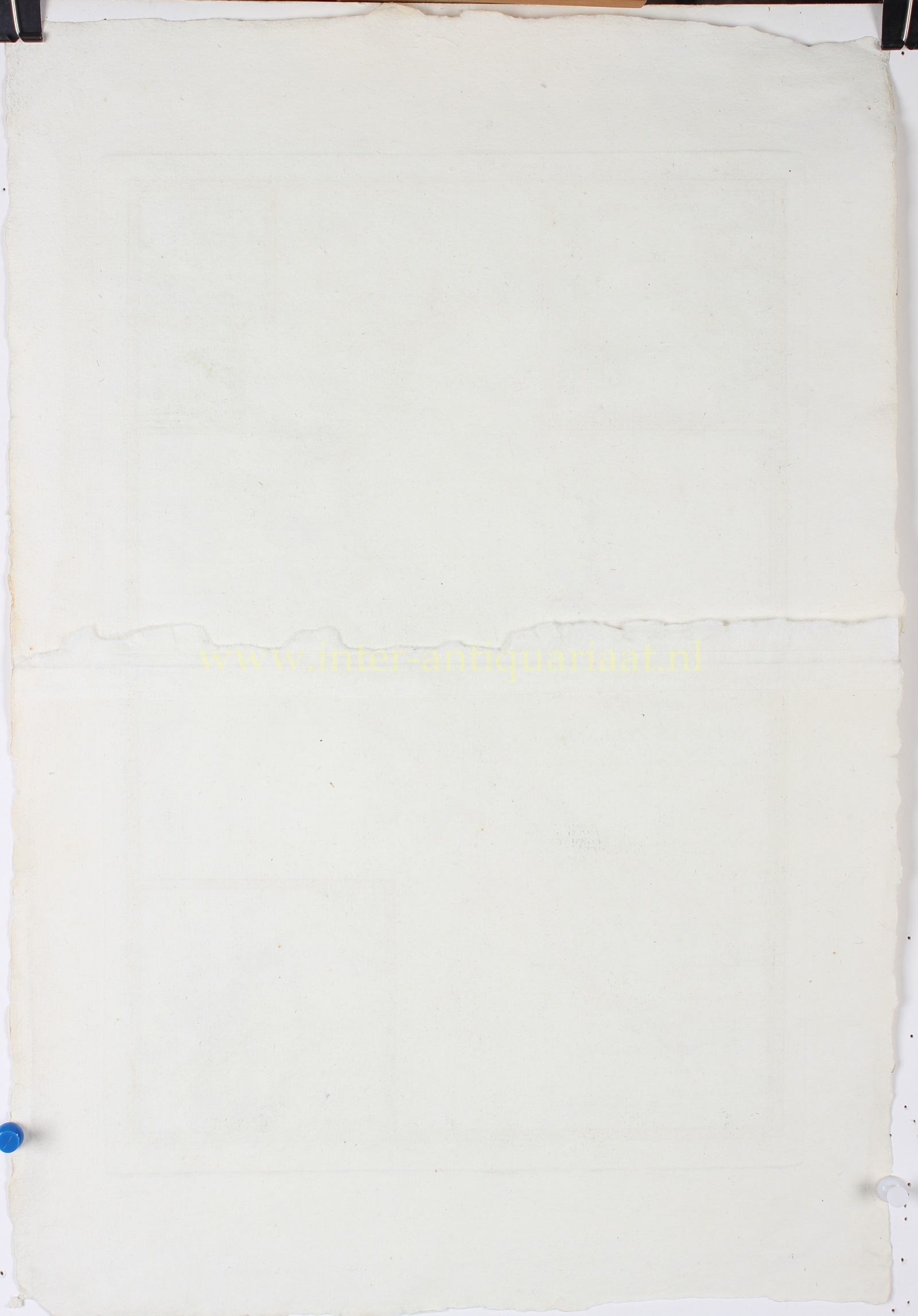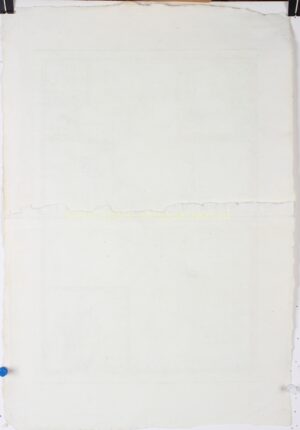“Carte De La Nouvelle Zeelande,” copper engraving made by André for the “Atlas encyclopédique, contenant la géographie ancienne, et quelques cartes sur la géographie du moyen âge, la géographie moderne, et les cartes relatives à la géographie physique” by Rigobert Bonne and Nicolas Desmaret, published in Paris 1787-1788. Coloured by a later hand. Size: approx. 35.5 x 24cm.
This French map is an early copy of James Cook’s 1772 chart of New Zealand showing four inserts: Cook Strait, Bay of Islands, Mercury Bay and Tolaga Bay. Also Cook’s mistakes were copied: Banks Peninsula is depicted as an island and Stewart Island as a possible peninsula.
Captain James Cook (1728-1779) is best known for his three voyages to the Pacific. His discoveries radically changed the western understanding of the world in the late 18th century. He was the first to circumnavigate and chart New Zealand and provided the earliest European accounts of exploration along the eastern coast of Australia and the Hawaiian Islands. On February 14th, 1779, he was killed on Hawaii after attempting to kidnap the chief of the island.
Captain Cook undertook the surveys used to create his map during his first voyage in 1769 and 1770, making him and his crew the first Europeans to visit the islands since they were discovered by Dutch explorer Abel Tasman in the early 1640s. Cook’s map is also the first to detail the coastline of both islands and labels their points, bays, and capes. The mountainous interior topography as it was perceived from Cook’s ship and the shore is also illustrated. Many of the place names Cook bestowed upon the islands remain to this day, including Mount Egmont, the Bay of Plenty, Hawke’s Bay, the Bay of Islands, and the Bay of Kidnappers.
Price: Euro 750,-





